NIGHT PEOPLE – A PRIME READ
Amazon has chosen to feature NIGHT PEOPLE for it’s Prime Reading category! Prime Members can download and read NIGHT PEOPLE FREE for a limited time! CLICK NOW to Download and Read your copy!

Amazon has chosen to feature NIGHT PEOPLE for it’s Prime Reading category! Prime Members can download and read NIGHT PEOPLE FREE for a limited time! CLICK NOW to Download and Read your copy!
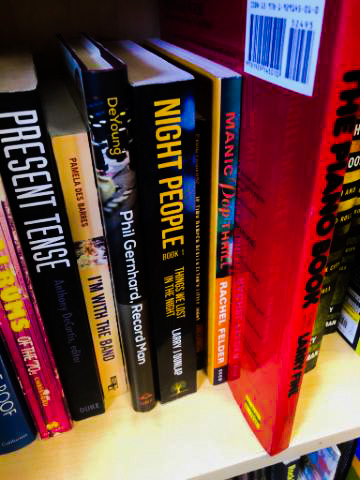
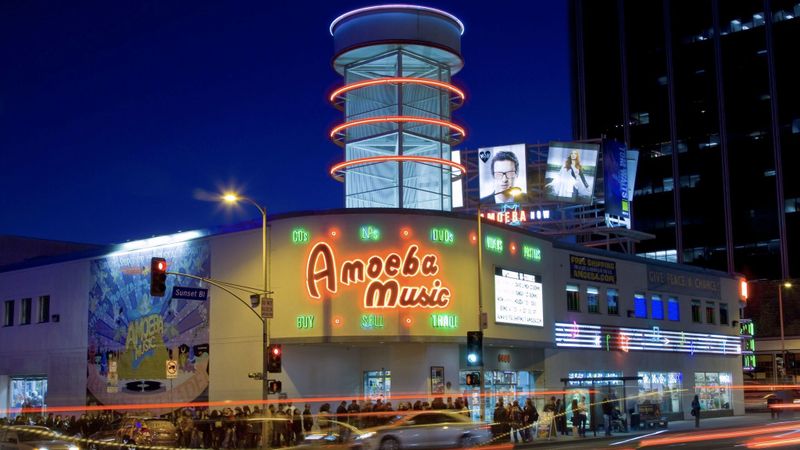
Just recently heard that you can find Night People stocked at Amoeba Music on Sunset Boulevard. The iconic music and record store is located between Ivar and Cahuenga in Hollywood. It’s a fantastic place and not far from many other places on Sunset Boulevard where the story takes place: the Hullabaloo Afterhours, where we played with many of the most popular acts of the early 1960s; Gazzari’s Nightclub; where I had a crisis of faith about our music, just one week before we opened at Caesars Palace; the Sunset Las Brea Travelodge where it crosses Sunset – we had to sneak most of the guys in Stark Naked and the Car Thieves in at night we were so broke, the Red Velvet club where we switched clubs with Ike and Tina Turner so we would be close to the studio, and Producer’s Workshop where we recorded most of our records.
Quick reminder, the concluding volume of Things We Lost in the Night, Enchanted, Book 2, will be available for early review soon. Sign up for the mail list if you’d like your review copy. Also not from Gower Street, where City Recorders, my recording studio used to be.
This post is part of a series of annotations from the pages of Night People, Book 1 of Things We Lost in the Night, A Memoir of Love and Music.
“Dave’s familiar grin forced me to smile as he unfolded his lanky frame out from behind the wheel.
Mac peered out at me from the passenger seat. Les, male-model handsome, wound down the rear window. A moon-faced guy he introduced as Mickey Smith, a guitar player friend, sat next to him. I didn’t know Mickey, but Dave, Mac, and Les were the rest of my disintegrating vocal group, the Reflections.”
This excerpt from the second paragraph of the beginning chapter introduces (from left to right in the photo) me, Dave, Les, and Mac, the three members of my vocal group. I struggled with finding the right place to begin this memoir since this wasn’t the beginning of the story for me. For me, it all began in September of 1957 while I was a junior in high school. So, in one sense, I’ve started in the middle of the story, though interesting bits of what came before this will gradually be uncovered in the pages of Night People and Enchanted. The reason I chose this moment to begin the memoir was because the four of us, who I sometimes refer to as the Four Musketeers, will also appear together at the end of the story. And though it isn’t the beginning, it is where our journey begins. As for Micky Smith, that will be in a later annotation.
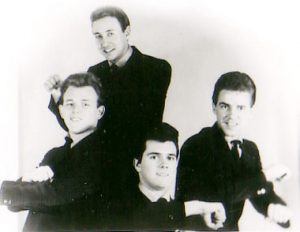
REFLECTIONS: Larry, Dave, Les, & Mac
[This is from a collection of scenes, stories and little chapters that were left on the cutting floor now that Things We Lost In The Night is complete.]
In early 1965, before the guys in my vocal group, the Reflections, left for California in April, we’d tried to develop a little floor show to play in clubs around Indianapolis at Mac’s suggestion. Dave and I had been singing together since high school, but Mac, who had joined us a few months earlier, was already a professional performer. He’d been in the Casinos, a show band from Cincinnati when we met him. They later had a hit with the ballad “Then You Can Tell Me Goodbye.” A few weeks earlier, at our New Year’s Eve party, he told us he was sure we could make some extra money that way. He told us he knew how to perform on stage and could construct little shows for us to do. And though the rest of us shared one single left foot and a clumsy one at that, he swore he could show the rest of us how to do choreography to the songs we already knew. I had serious reservations about that. We’d rarely performed publicly, we didn’t play instruments, and my wife, Pat wasn’t thrilled about the idea… and I tended to freeze up in front of audiences. But for many of the guys, it made sense, especially when Mac called the agent for his ex-band, the Casinos, who later had a big hit with “Then You Can Tell Me Goodbye,” told him she could book the band if we would do a few out-of-town gigs to tighten up the band.
Les, who’d expected to be our guitar player, became our last-minute replacement bass singer a couple of weeks before our first booking in Birmingham, Alabama at some place called the Boom Boom Room. Since Les was going to sing with us and not play guitar, we needed musicians to back us up. Les found a little outfit called the Zeb Miley Trio playing in a downtown Indianapolis bar called Susie’s Twist Club. They agreed to go on the road with us for a few weeks to tighten up our show. We renamed the combined band and singers, the Checkmates, and ill-fated choice as it turned out, but that is a different story.
At some point I’ll post something about our adventures at the Boom Boom Room right in the middle of the civil rights marches going on at the time, about how dangerous it had been including threats from the audience for not playing the right music and accusing one or another of us of sleeping with somebody we shouldn’t have, and a bomb threat — but I thought I’d like to post this little bit from the Can Can Room, the next club we played in St. Louis, Missouri, first.
We walked out into the cold Missouri night to find Zeb Miley and Johnnie Lamb in a heated discussion with a portly older man in a navy blue suit with an open-collared white dress shirt. The heavyset man was poking Zeb in the chest while Johnnie was walking around in little circles looking at the ground. When I walked up the man was saying in a cloud of frosty breath, “. . . what were you thinking, that you could walk into this club on Union paper with non-union musicians in your band? What kind of idiot are you?”
“What’s happening?” I asked.
“Musician’s Union bullshit,” Zeb said. “The usual union crap. As usual, they do more to stop you and then help you get work.”
“You know,” the man said to Zeb, “you should be thanking me. I could yank all of you off the stand right now. Yes I could. Club operator would never have another union band in this joint if they didn’t comply.
“Half your band,” he went on, waving his hand around, “is behind in their dues and the other half,” waving his other hand, “don’t have any union cards at all.”
Zeb turned to me, frowning and said, “He’s the local union rep and he’s saying you guys ain’t union so you can’t go back on stage.”
“You,” the man said, turning to make me his center of attention. “Whatinhell do you think you are doing up there without a union card?” While belligerent, he also seemed a little perplexed.
“Why would I need a union card,” I said, even more perplexed. “Why would singers need to belong to a musician’s union? We don’t play instruments.” I looked at Zeb trying to comprehend what was going on.
“If you sonsabitches are on that stage, you gotta have a card, period.” Mr. blue suit insisted.
“We just played in Birmingham, Alabama last week, before we came here. No one said anything about union cards to us.”
“Do you know where you are, sonny? Do you now?”
“Yes sir. This is St. Louis, Missouri. And it’s a beautiful city,” I added.
“And, does that mean anything to you, music-wise? Ring any bells?” he continued smugly.
I looked around for a lifeline but no one else seemed to have a clue, either. “Nosir I don’t.
“Well, you ignorant SOB, this is Local #2 of the Musician’s Union of America. Now I suppose you’ll have to tell me that you don’t know what that signifies, won’t you?”
I shook my head no. I had failed so many classes in school and now here I was again, failing Musician’s Union 101 this time, dammit.
“No?” he said, continuing to rub it in. “No, you still don’t know? Well, I’ll tell you. We were the second local union formed, right after New York City. This is probably the strongest local in the United States. You do not fuck with St. Louis Union Local #2. Do you understand that?”
“Yes, but I don’t see …”
“No pissant city like Birmy-fucking-ham, Aly-fucking-bama decides whether you need a union card in St.-fucking-Louis. Is that clear?”
“Okay. Okay,” Mac said, “We get it.” By this time, Dave had joined us on the street. Drivers and passengers in the cars passing us by were looking at us. It was freezing out here. “But,” Mac continued, “We don’t play instruments. I don’t get how we have to belong to a union?”
“So you don’t play an instrument, you say, even though I say, if you step on the goddamn stage in there you got to be union. Well, let me ask you something sonny boy. What was that funny metal thing you was tootling around on while ago marching around that club like a loon? What was that anyway? Looked suspiciously like a saxophone, of course, I could be mistaken. Maybe you was playing the radio,” the Union rep grinned.
“Aw that was nothin’. I don’t really play sax. I just tote that thing around when we’re doing this dancin’ thing. Can’t play but two notes. You can’t count that,” Mac protested.
“And where’s that tall boy,” the rep continued. “Oh, here he is right here. I don’t suppose you play that trombone though you was pushing that slide back and forth like you knew what you was doing. You just another mummer, too?”
“Hell, I just got here,” Dave said, “I got no clue what’s going on. I play a little trombone. I’ll tell you how much though, damn little.”
“Damn little is plenty enough,” said the man as he turned to me. “And then there is you. Yes, you were banging two pieces of wood together so I expect you’re going to tell me you weren’t playing an instrument either. That so?”
“Yeah, I mean no, I don’t think so …” I said, wondering a bit.
“Claves,” he said. “those pieces of wood are called claves, they’re South American musical instruments my fine young friend so you and all the other guys without union cards, including the last guy who had a guitar strap on last time I saw him are not in compliance with union rules and regs. I can fine your asses up to $500 apiece.”
I went white. “Why that would end it for us. We’re just trying to get started. This is only our second job. That’s not fair. That can’t be what the union is for,”
“Fair, did you say. Well, fair is as fair does, and Zeb Miley here, well he’s the leader of this group. He knows the rules and he’s the one that broke ‘em. I’ll likely be pulling his card tonight and he’ll have to attend a hearing in a couple of weeks to find out how much it will cost to get it back. If he can get it back,” the rep said with finality.
We were all well and truly cowed and intimidated. “Is there some way we can make this right?” I asked. Zeb threw his hands down in disgust and turned away. “We weren’t trying to avoid anything. Really, we just didn’t know.”
“I dunno,” he said, looking around at us. “Some of you don’t seem so willing to see the error of your ways.”
“C’mon guys,” I said to everyone on the street. Scott and Les were still inside somewhere. “Please, Mr ….” I started. I didn’t even know his name.
“I am Jonas Lawndale,” he said, “and here is my card. ‘Bout time somebody asked if I was legit.”
“Mr. Lawndale, we are a young band, just trying to get a foothold. If you could see your way to give us some leniency and help us find a way through the mess we’ve made here, we’d appreciate it.” I said.
“Well sir, Mr. Miley,” Mr. Lawndale gestured in Zeb’s direction. “Does this fellow here have the right of it or do you continue to take exception to my pointing out your failings here? You are the rightful leader, signed onto this contract, and it is in your hands.” He stuck his chin out toward Zeb.
Our looks at Zeb must have conveyed enough fervor for him to get the message.
“Yeah, yeah, I know we’re in the wrong,” said Zeb with difficulty. He thought about it a bit and then said, “I didn’t rightly think these singer guys would have to be in the union especially as they don’t sing but 10 songs a night. But it’s so that a couple of us are late on our dues, so yeah, we need your help if you’d be offering.”
“Hmmm,” hummed Mr. Lawndale, seeming to figure what he would say to us. “First off those ‘singer guys’ as you call them, they ain’t going back on that stage tonight and not again ‘til they got union cards.
We didn’t say anything. Thank God, we’d finished our second show. There was one more set to go but we were finished for the night.
“Now I’m willing to forget about the fines for ya’ll since you’ve explained so nicely about where your confusions was, and I’ll forget about them late fees as well, but all you union guys got to have your cards up to date starting tomorrow night. And I am firm about that.
“By the way, it does seem that one Mr. Lamb does seem to be up to date so he can play it seems.”
“Mr. Lawndale,” I asked as gently as possible, “What does it cost to join Local #2 of the Musician’s Union of America?”
“Well son, I believe we can make you a member for $150 tomorrow down at the union house.” Jonas Lawndale beamed.
“Wow!” I said, stunned. “Wow!” I repeated since I couldn’t think of anything else to say.
“We belong to a different Local, Mr. Rep,” Zeb said, a bit sourly, so do we have to pay our fees on Local #2’s schedule?” I think Zeb had already forgotten the union rep’s name.
“Well, Mr. Zeb Miley, we at Local #2 have a great fondness for our brothers across this great land and so, in token of that respect, we honor paying fees that we forward to those locals. So, in short, you must pay, down at the union house, the fees appropriate to your schedule at your home local.” Mr Lawndale added, “If you decided that you wanted to change your affiliation to the best and strongest union in this United States, while I’m sure we could get you a significant discount, however.”
“Well, then, Mr. Rep, we will get us into compliance first thing tomorrow. But I also reckon we better get ourselves into that club and finish our last set or we won’t have no job to save.” Seeing Mr. Lawndale’s look he added, “And that means without them singers. I know.”
“You will be seeing me tomorrow night, Mr. Miley. I give you fair warning, though, should you fail in any respect to meet the stipulations I have given you, I will not be so easily swayed as I have been tonight.” Mr. Lawndale turned without another word and walked into the night.
“Damn, where are we going to get $150 each?” I said to Dave and Mac despondently?
Before Zeb headed into the door, he said, “That’s not the hard part. You guys can run back to Indy tonight and get union cards for $35 in the morning and be back in time for your first show. The big problem is your guitar player. Boy is underage and I don’t know if he can figure a way to get hisself a union card. You better check with him about that.”
IN THIS FAST-MOVING ADVENTURE AND ROMANCE-FILLED MEMOIR THAT READS LIKE A NOVEL, A young Midwestern singer and his vocalist friends experience the transformative power of love, loss, and music in a chaotic West Coast adventure in the1960s. If you liked memoirs from Bruce Springsteen, Robbie Robertson, Carly Simon, Keith Richards, and Patti Smith, you’re sure to enjoy Night People.
“I didn’t want to believe how much you’ve changed, but you’re a different person here. You live at night here, your friends are night people and you’re becoming one, too. You hardly see daylight on weekends. Here it is, nearly dusk, and you’re leaving to play music all night again to entertain your new friends–your new girlfriend–all the new people in your new life.”
In 1965, Larry’s rock and roll vocal group is disintegrating along with his marriage to his high school sweetheart. Despite his resolution to turn his life around in Indianapolis, he finds himself reunited with his scattered-to-the-winds friends in distant San Francisco struggling to re-make themselves into a rock band in the dive clubs of the Bay Area.
Barely surviving the transformation, they struggle to avoid the dangers,temptations, and insecurities waiting to trip them up in their new life. As the band scrambles to overcome, or at least endure, every obstacle in its path, Larry faces a painful choice that will result in loss fort hose he loves no matter how he decides.
Their strong voices and new skills are a potent combination. Soon, Larry and his new band are plunged into a breathtaking journey through mob-run nightclubs, Las Vegas showrooms and backrooms, famous Hollywood night spots, top West Coast recording studios, celebrity managers–and passionate romance.Everything they’ve ever dreamed of is just around the next corner.
Night People’s adventure is set against the backdrop of the West Coast in the mid-60s: a historic era of tectonic cultural, political, musical, and sexual upheaval–and the draft. Everything Larry thought he knew about life, love, and himself is challenged in the tumultuous nights where things and people are too easily found and lost.
PRAISE FOR NIGHT PEOPLE
“Dunlap’s sense of transcendence is similar to the sensation Keith Richards describes in his memoir, ‘Life: ‘ …you leave the planet for a while…‘ Reliving his rock and roll years in his wonderful memoir, NIGHT PEOPLE,’ Larry Dunlap, must have left the planet for a while, too.” I loved it, and highly recommend it. — Kiana Davenport, The Spy Lover, Shark Dialogues
“Whether or not you remember the swift intoxicating music of that era or theseismic shift of mores that burst from the free-love movement, [NIGHT PEOPLE] captures the beat of that misty time when the country suffered “agrowing thirst for individual freedom, a desire to escape from anever-darkening shadow of war, and a national hangover following thepublic murder of a young and popular president.” — C.D. Quyn, Steph Rodriguez, Manhattan Book Review
“Larry Dunlap lived it. His memoir ‘NIGHT PEOPLE’ is a frank, funny, frenzied chronicle of the 60’s West Coast music scene.” — Susan Shapiro, New York Times bestselling memoirist, FIVE MEN WHO BROKE MY HEART, GOOD AS YOUR WORD, OVEREXPOSED
WHAT READERS ARE SAYING
One of the best biographies written by a musician!
A Riveting, Mythic, Rock and Roll Memoir
Wonderful! Excellent Read!
Thoroughly Entertaining.
A Great Read
The Naked Truth!
A Window Into a Fascinating Era
Rock and Roll, baby!
A Must Read
A Great Read About An Exciting Life
Music Has Found Me Again
SO Worth Reading!
Night People Left Me Weak!
My Life Seemed Extremely Boring After Finishing “Night People”
Lessons of Life, Love, and Sex in the 60s
Genuine, Exciting, Graphic and Memorable – life in the 60’s
Fantastic Coming of Age Memoir!
Compelling!
Music Reality!
Great Look At An Era
Couldn’t Stop Reading!
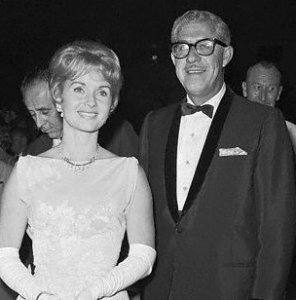 I didn’t get to meet Debbie Reynolds the night she and her husband came to see us. My mistake, though our lead singer, Dave, had the honor. It happened on one of the most remarkable nights in our career as entertainers and musicians. We’d been hired by Caesars Palace in late December of 1966 to help open the re-imagined Nero’s Nook Lounge nestled next to the new hotel’s casino. It was a gorgeous showroom and the hottest ticket in town. I hadn’t realized when I’d signed the contract that we’d be limited to singing ballads and mellow pop songs, like the Letterman. Another restriction in our contract forced us to appear as The Big Spenders instead of Stark Naked and the Car Thieves, another difficult pill to accept.
I didn’t get to meet Debbie Reynolds the night she and her husband came to see us. My mistake, though our lead singer, Dave, had the honor. It happened on one of the most remarkable nights in our career as entertainers and musicians. We’d been hired by Caesars Palace in late December of 1966 to help open the re-imagined Nero’s Nook Lounge nestled next to the new hotel’s casino. It was a gorgeous showroom and the hottest ticket in town. I hadn’t realized when I’d signed the contract that we’d be limited to singing ballads and mellow pop songs, like the Letterman. Another restriction in our contract forced us to appear as The Big Spenders instead of Stark Naked and the Car Thieves, another difficult pill to accept.
We decided we couldn’t live with the constraints being placed on our performances any longer. The Saturday night we decided to break out and play our best material whether pop, rock, or rhythm and blues regardless of the consequences just happened to coincide with a night full of stars from movies and television, international personalities, and hotel headliners from all up and down the Strip. Behind the curtain, we stood nervous but excited. We couldn’t be sure the audience wouldn’t hate us, or the entertainment manager wouldn’t close the curtain in the middle of the show. We risked losing our new 3-year contract worth hundreds of thousands of dollars (and in the end it did), but together, we’d made the final decision to be true to our nature in the dressing room before coming to the stage, so here we were.
We opened with an Otis Redding tune, “Can’ Turn You Loose,” if I remember correctly and moved through our version of Bobby Hatfield’s “Unchained Melody.” It was probably Sam and Dave after that, and we mixed in “The Way You Look Tonight,” Letterman style, and on through the set list until we came to our closer. The audience response had been more than we could’ve hoped for so far. We’d worked long hours to perfect the Four Seasons “I’ve Got You Under My Skin,” and I don’t think the Seasons could’ve done it any more justice that we did that night. But the topper of the entire show came as we started into the song’s dramatic ending. I’ve excerpted the following from Night People since I can’t tell it any better …
“I tried to make out the figure moving below us through the blinding lights, until . . . wait—holy crap! That’s Debbie Reynolds down there pulling on Dave’s leg!
“Sing it, baby, sing it!” she yelled. A broad, encouraging grin spread across her face as he stood braced, high above her, to hit the high full voice note near the end of I’ve Got You Under My Skin. When we peeked through the curtain earlier, we’d seen Debbie Reynolds seated at an aisle table a few rows from the stage with her husband.
As Dave’s ringing tenor swept high, and then higher, into a dramatic falsetto run, she’d stretched on tiptoe to grasp the only part of him she could reach, his left pants leg just above a white patent leather boot. Laughing with joyful spontaneity, she shook it back and forth, like a dog with a sock puppet.
Dave had to be as astounded as the rest of us, but he closed his eyes, pushed his mic farther up and out, and leaned back to let those golden pipes of his rip.
“I’ve got you . . .” Dave crooned a cappella, working into the final phrasing of the song with the movie star still hanging onto his pants leg, staring at him with a wide smile. I stole a glance at Mac, his eyes wide as beacons. I knew mine were just as big as we joined our voices with Les and Craig in building the ending harmony.
“Never win, never win . . .” The lounge erupted, peppering another standing ovation with yells and excited shouts that crackled over thundering applause. More people rushed to the front of the stage as we hit the big finish and took our bows while the frenzied uproar mounted to a pounding pressure.
I looked left toward the rest of the band, trying to take us in. Jackets from our dark suits lay rumpled around us. Purple-and-white polka-dotted ties hung loose or strewn across the stage or amps. Burgundy cuff links on our custom tailored white-on-white dress shirts sparkled in the brilliant light. Leonard was sopping wet behind the drums, his dress shirt translucent.”
Debbie Reynolds put the icing on the cake for us that night. Her spontaneous encouragement and appreciation, more than anything else, endorsed our decision to let loose and show ourselves for who we really were. After the show, there was a note inviting Dave and the rest of us to her table. Dave beamed as he went out to meet her. Me? I’d chosen to go to Sammy Davis, Jr. who had also sent us a note. I’d recently read his autobiography, “Yes I Can” and wanted desperately to meet him, and that was a great privilege. But I sacrificed meeting one of the most amazing superstars ever to grace show business. Someone so full of life and so willing to share it, she’d rushed to the stage in front of everyone to express her excitement. To me, it’s not just another Las Vegas anecdote, it’s a moment of generosity I’ll never forget. I’m sure I’m giving voice to all of us on the stage that night when I send a wish from us that she rest in peace knowing that ours were among the thousands and thousands of lives she touched.
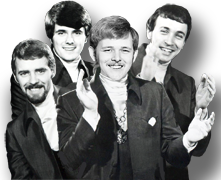
Mac, Les, Larry, and Dave
SUBSCRIBE TO LARRY’S PERSONAL EMAIL LIST
August 25, 2016
Contact Person: Rose Ash 909-626-4166
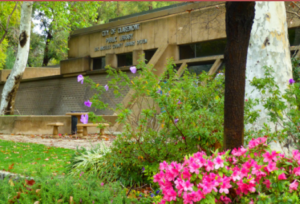 The Friends of the Claremont Library, in partnership with the Claremont Public Library, is pleased to announce their inaugural Claremont Authors Book Faire, to be held on Saturday, September 24, 2016, from 10:00 AM to 1:00 PM at the Claremont Public Library.
The Friends of the Claremont Library, in partnership with the Claremont Public Library, is pleased to announce their inaugural Claremont Authors Book Faire, to be held on Saturday, September 24, 2016, from 10:00 AM to 1:00 PM at the Claremont Public Library.
Contributing authors to the Book Faire include such notable Claremont authors as Jill Benton (biography), Chris Rubel (fiction), Allen Callaci (memoir), Diana Linden (art history), Joel Harper (children’s literature), Joe Woodward (biography/local history), David Allen (local history), Monique Saigal-Escudero (memoir), Paul Steinberg (environmental policy), Larry Dunlap (memoir), Yi Shun Lai (fiction), and Wendy Lower. An exhibit, featuring authors from the Collection and the Book Faire will be on display in the lobby of the Claremont Public Library through the month of September.
All of the Authors participating in the Book Faire are included in the Claremont Authors Collection, a special project of the Friends of the Claremont Library. Originally conceived by former Claremont mayor and local historian Judy Wright, the Collection brings together the works of notable writers who have resided in Claremont or have a significant association with the city. The Collection is permanently housed in the Claremont Public Library. Claremont authors are strongly encouraged to consider donating their work to the Collection. Donation guidelines can be viewed by going to www.claremontlibrary.org
The doorbell on the side of our house next to the driveway rang. This doorbell, with its own higher pitched ring than the front doorbell, rang in the my bedroom in the basement, commonly referred to among my friends as the dungeon due to my insistence that it be painted battleship gray and because to get to it, you had to traverse the furnace room with it’s spooky tentacled maze of vents rising up from of the furnace’s heart to snake across overhead. In my teen years it had served as the bridge of a starship, the conning tower of a submarine, and clubhouse before becoming our rehearsal room. I went up the basement stairs and ushered in Hasty Smith and another guy who seemed to tumble down the open steps all elbows and knees. Chuck Tunnah, Hasty said, introducing him to Pat Baldwin and me, was an inch or two over six feet and kind of gawky like he hadn’t quite grown into his skeleton. He had dark hair combed back from a widow’s peak that made him look fiendish.
“Now listen you guys. Don’t start that “Charlie the Tuna” crap with me,” he said with a big grin, like the Joker’s in Batman, in reference to the Starkist Tuna cartoon spokesfish, “because I do taste great and unlike that cartoon Tuna, I have great taste. Just want to get that clear”
That was how I met Chuck Tunnah, the fourth singer of my original vocal group as we formed the Aristocats, in the Fall of 1957. On July 5, 2016, Chuck, Charles E. Tunnah, died peacefully at 75 years of age in an easy chair with the Indianapolis Star in his hands. As with so many of my friends and associates passing into their later years are beginning to disappear I fear my blog will become an obit page, so I will resist that except in special circumstances. Though Chuck and I had not been in touch for many, many years, this loss struck very close to home to me. Hasting Smith, Jr., mentioned above, and Chuck sang in our high school choir and the exclusive Madrigal singers, and both patiently taught Pat Baldwin and me, both complete neophytes, how to learn and sing the popular music we liked. Hasty soon left us to go to Purdue, and eventually to become a nuclear rock scientist in Los Alamitos, New Mexico, where he passed away prematurely and suddenly as he warmed up to begin an early morning run.
Chuck, Pat, and I found Dave Dunn and went on to become the Reflections, and to record and release our first two records in Indianapolis in 1964. One of them, In The Still of the Night, became a regional hit on Chicago’s WLS, outcharting the Beatles for a couple of weeks. Chuck is the bass singer who first started the bass line that brought that version of a classic to prominence for us.
In Night People though, Chuck is introduced and disappears in the same paragraph; he never made the trip to California and on to the adventure that turned us into Stark Naked and the Car Thieves. Though he could be generous and kind, he could also be loud and obstreperous and because of that, he ended up relegated to staying in Indiana. He, and Hasty, have now passed beyond the curtain of life. When Hasty died, I felt the harsh breezes of change whispering through the hole in my history he left behind. The wind has picked up.
TOMORROW, JUNE 11, LARRY J. DUNLAP AND MANY OTHER POMONA VALLEY WRITERS including Steve McCarthy and Rick Stepp-Bolling, will be signing books at the Glendora Library’s “Meet Your Local Authors” event from11 am to 1 pm. 140 S. Glendora Avenue in Glendora, CA 91741. I’ll be autographing print editions of “NIGHT PEOPLE, Book 1 of Things We Lost in the Night, A Memoir of Love and Music in the 60s with Stark Naked and the Car Thieves.” The book will be on sale for $14.99 and discounted, same edition but older cover, books for $12.99. Both print editions purchases will include a free eBook.
FREE ALBUMS AND MORE
If you are local to this area, please stop by and pick up a free album of the Songs From: “Things We Lost in the Night,” including all the recorded songs from NIGHT PEOPLE, and the upcoming, ENCHANTED. I’d love to meet and sign an autographed bookmark for you. More info at Glendora Public Library Events.